

Fiji Council of Social Services Executive Director Vani Catanasiga, left, and Fiji's Minister for Finance, Dr Biman Prasad.
Photo/Facebook, Fiji government
Council hails Fiji Budget as govt boosts TVET funding to address skilled worker exodus
Fiji’s Council of Social Services has welcomed the government’s national budget, which is being debated in parliament this week.

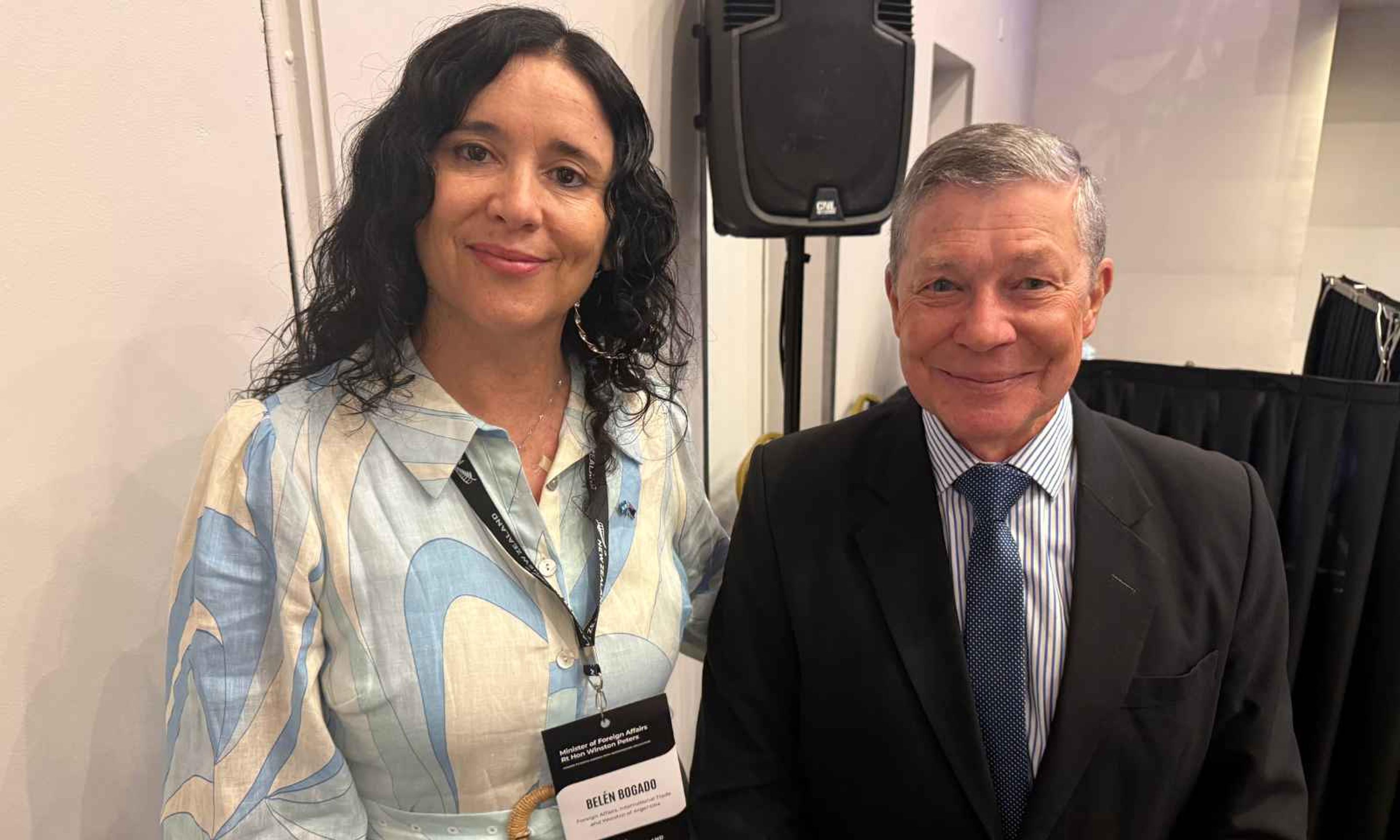
How the Pacific region could benefit from Argentina’s economic rebound, expert

Dave Rennie becomes first All Blacks coach of Pacific heritage

‘Without fear or favour’: Barbara Dreaver chronicles 30 years on the Pacific frontline

Tongan family in Abu Dhabi recount explosions as Middle East conflict escalates

How the Pacific region could benefit from Argentina’s economic rebound, expert

Dave Rennie becomes first All Blacks coach of Pacific heritage

‘Without fear or favour’: Barbara Dreaver chronicles 30 years on the Pacific frontline
Fiji’s Council of Social Services (FCOSS) has welcomed the government’s Budget announced last week by Finance Minister Dr Biman Prasad.
Vani Catanasiga, the council’s director, says the budget adequately addresses the needs of vulnerable populations in Fiji.
In his address, Prasad, who is also Deputy Prime Minister, says Fiji is boosting its funding and scholarships for the technical and vocational education and training (TVET) sector to address the loss of skilled workers migrating to New Zealand and Australia.
The initiative is part of the Fijian coalition government’s 2025-2026 national budget, which is being debated in parliament this week.
The budget outlines a total revenue of FJ$3.9 billion (NZ$2.89b) and total expenditure of FJ$4.8b (NZ$3.56b), resulting in a net deficit of FJ$886 million (NZ$657.29m).
Catanasiga welcomes the reduced VAT from 15 per cent to 12.5 per cent, implementing zero VAT on 22 essential items, increasing social welfare allowances by five per cent, continuing the $200 back-to-school assistance, subsidising transport, and making substantial investments in healthcare.
“I think it is a comprehensive social living package that might provide immediate relief to vulnerable populations,” she told PMN News.
“But also, we know for a fact that we will have to gather our members around August or September to do a deep dive. At that stage, we'll be able to see whether these initiatives are having the impact that it was initially intended for.”
Prasad told PMN News that despite the trend of labour migration, Fiji is committed to maintaining its skilled workforce and addressing domestic labour shortages.
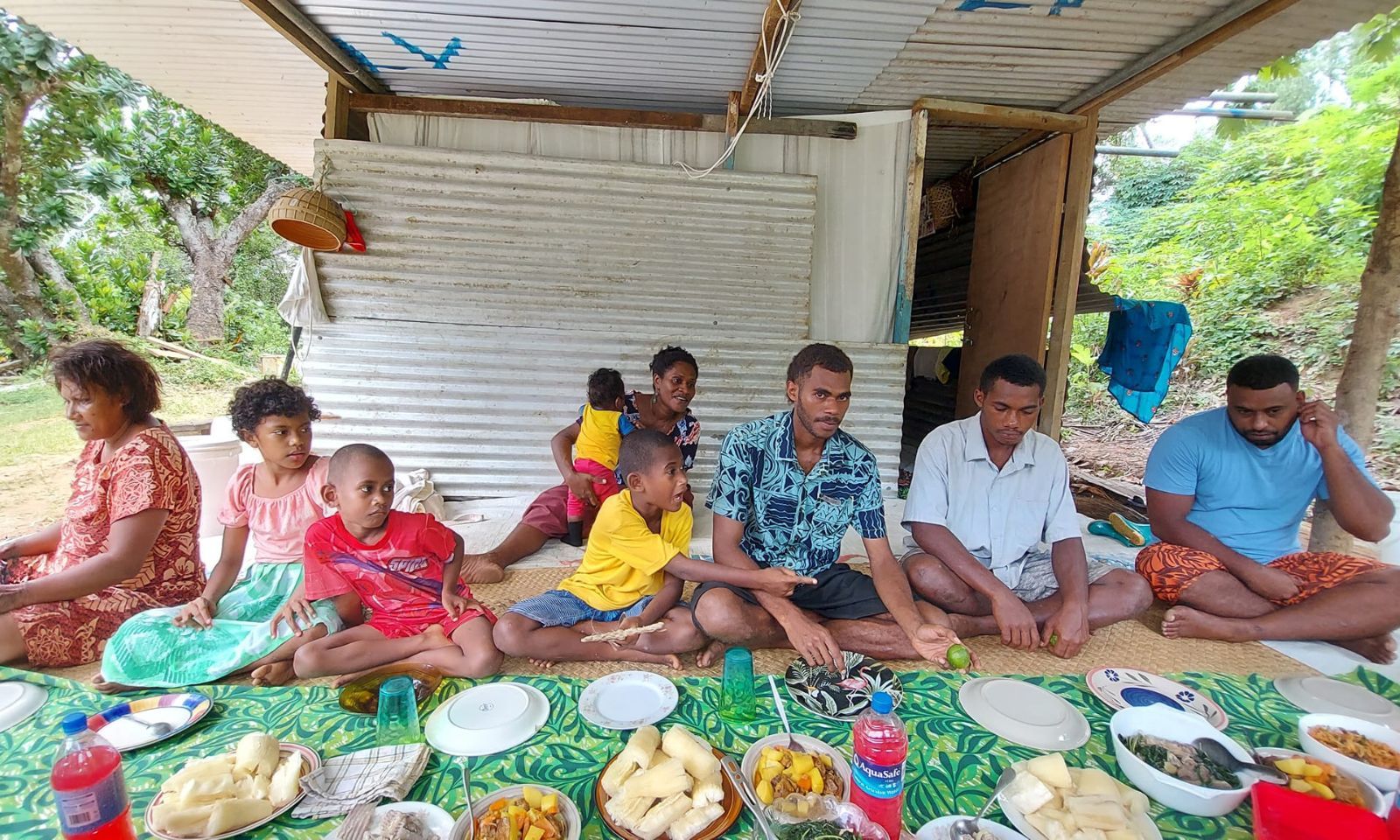
FCOSS believes the social living package will bring meaningful relief for low-income households. Photo/PMN News
“We've been losing a lot of people to New Zealand and Australia, and we want to make sure that while we cannot stop people from migrating, we need to make sure that we keep our supply chain,” the National Federation Party (NFP) leader says.
“So, we have reformed our scholarship scheme; we are giving a lot more scholarships in all areas, including TVET.
“We are also funding a number of technical training institutes, old and new, in Fiji, to make sure that all who leave school are actually captured in these technical institutes and supported so that they can get basic technical skills to be able to find jobs.”
According to the estimates in the 2025-2026 Fiji national budget, TVET scholarships will increase from 2780 to 4500. These scholarships will also be available for students with special needs.
Apart from existing courses in construction, tourism, hospitality, and automotive, five new areas will be added, including Traditional Handicraft, Performing Arts, Community Tailoring, Women’s Small Business Operations, and Vocational Literacy and Numeracy.
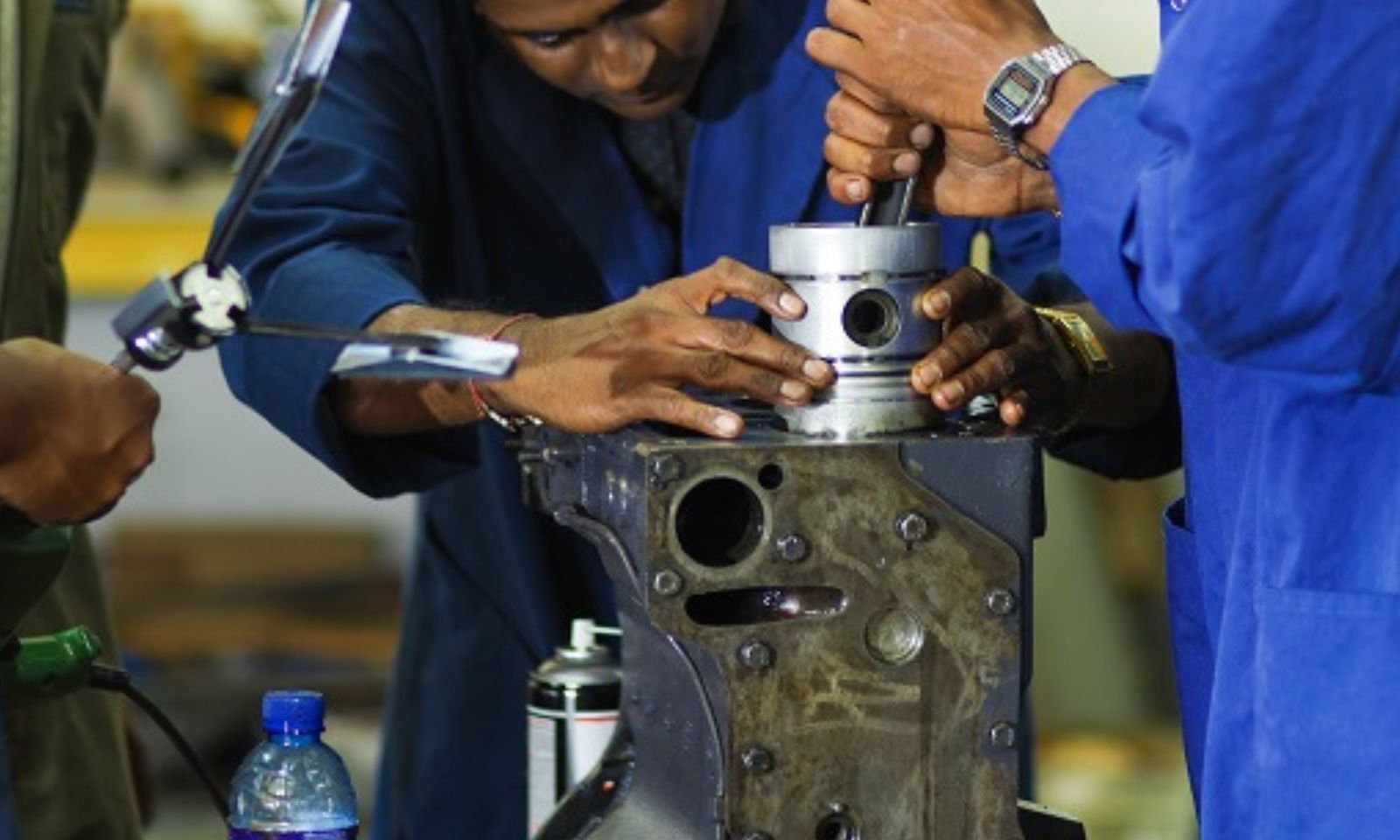
Five new courses will now be added to the existing TVET courses as part of the Fijian government's efforts to retain skilled workers. Photo/FNU
“There is a lot of employment that is there, but we don't have people,” Prasad says. “We are actually importing labour from other countries.”
“So, this government has put in a lot of resources, direct intervention in the last three budgets, including this budget, to ensure that we produce enough skills in the country.
According to StatsNZ, 5500 Fijians migrated to New Zealand for work in 2024 alone.
Prasad says he is grateful for the support and remittances from the Fijian diaspora, saying that Fiji remains close to their hearts.
To encourage the diaspora to return, invest, and retire in Fiji, the government has reduced citizenship and passport fees from $3400 to $1500.

Fijian construction workers are being increasingly sought after abroad. Photo/PMN News
There are also incentives being offered to those registered in Vola ni Kawa Bula (VKB) or those who can prove Fijian ancestry at independence, allowing them to live, work, and invest in Fiji without requiring a passport.
The government is also providing business and tax incentives for overseas investors, including those from the diaspora.
Prasad highlighted the challenges the current government inherited: a public debt equivalent to 90 per cent of GDP from the previous administration. The government has taken measures to reduce the debt while ensuring proper funding and public welfare.
These measures include lowering the debt-to-GDP ratio, increasing social welfare, and investing in health, education, and infrastructure.
Watch the Fiji budget address below.
“We are keeping the debt-to-GDP ratio below 80 per cent, but this time we are having a slightly expansionary budget with a deficit of about six per cent,” Prasad says.
“We are doing this deliberately because we need to fix a lot more in terms of our infrastructure, but also anticipate the global headwinds and the economic slowdown that might occur and how it might affect Fiji.
Fiji’s economic growth is at three per cent, with revenues exceeding forecasts in the last two budgets, reflecting increased investor confidence.
“We've been able to create a lot more confidence, a lot more freedom, including the media freedom and that itself has spread confidence in the country amongst the consumers amongst the investors,” Prasad says.
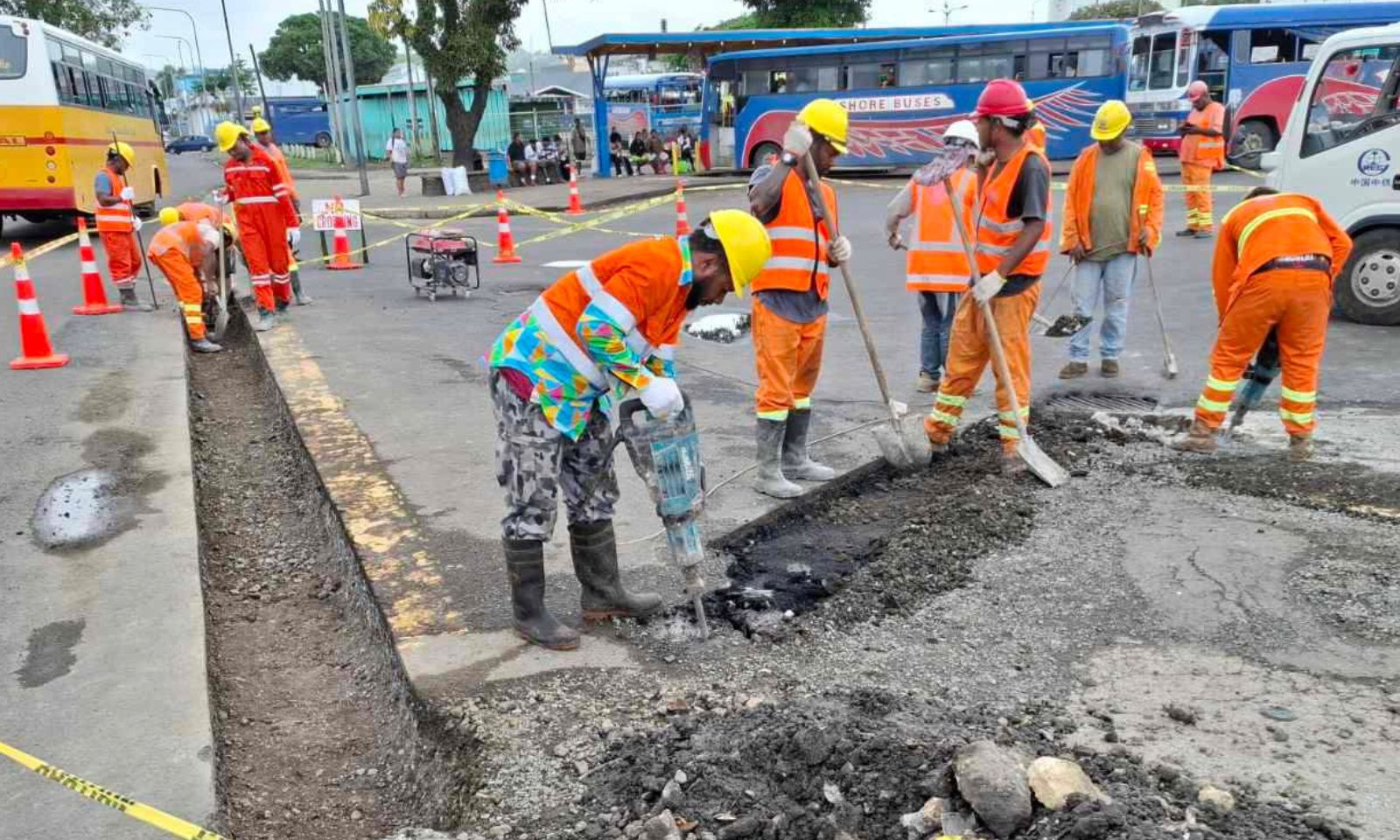
The Fiji government says there is a need to fix infrastructure. Photo/Suva City Council
“I think we will have a growth rate that will be the envy of many countries around us because we are putting in the processes.”
Investments worth FJ$5.8 billion (NZ$4.3b) are underway in Fiji, with 177 projects completed. These investments, along with major infrastructure projects, are expected to positively contribute to economic growth this year.
The targeted measures for the most vulnerable communities have received praise from the Fiji Council of Social Services.
While Catanasiga acknowledges improved funding for essential services like health and education, she stresses the challenges of implementation, particularly in rural areas.
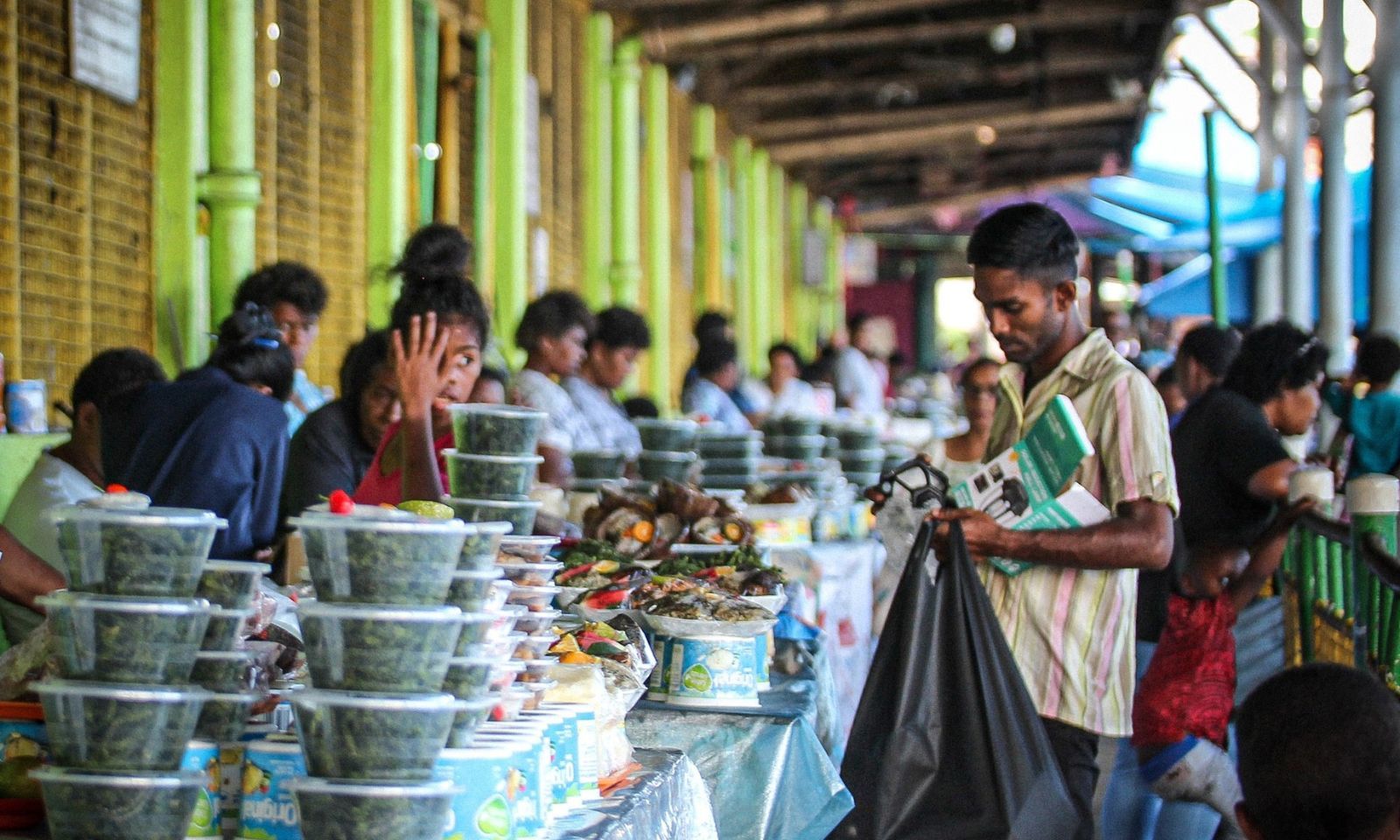
The Council says the targeted measures are welcome news but proper monitoring needs to be implemented. Photo/Suva City Council
She suggests establishing a community monitoring system to bridge the gap between allocated funds and their real-world impact.
“We had put in a budget submission that included two items, one of which was a framework or perhaps a proposal for community monitoring on implementation of these budgeted activities,” Catanasiga says.
“We keep seeing a huge disconnect between what the government has allocated, what parliament passes, and what is happening on the ground. We have yet to get confirmation on whether this is a go or not.”
Catanasiga’s top recommendation for a more inclusive and people-centred budget is to address civil service productivity and capacity to implement initiatives effectively.
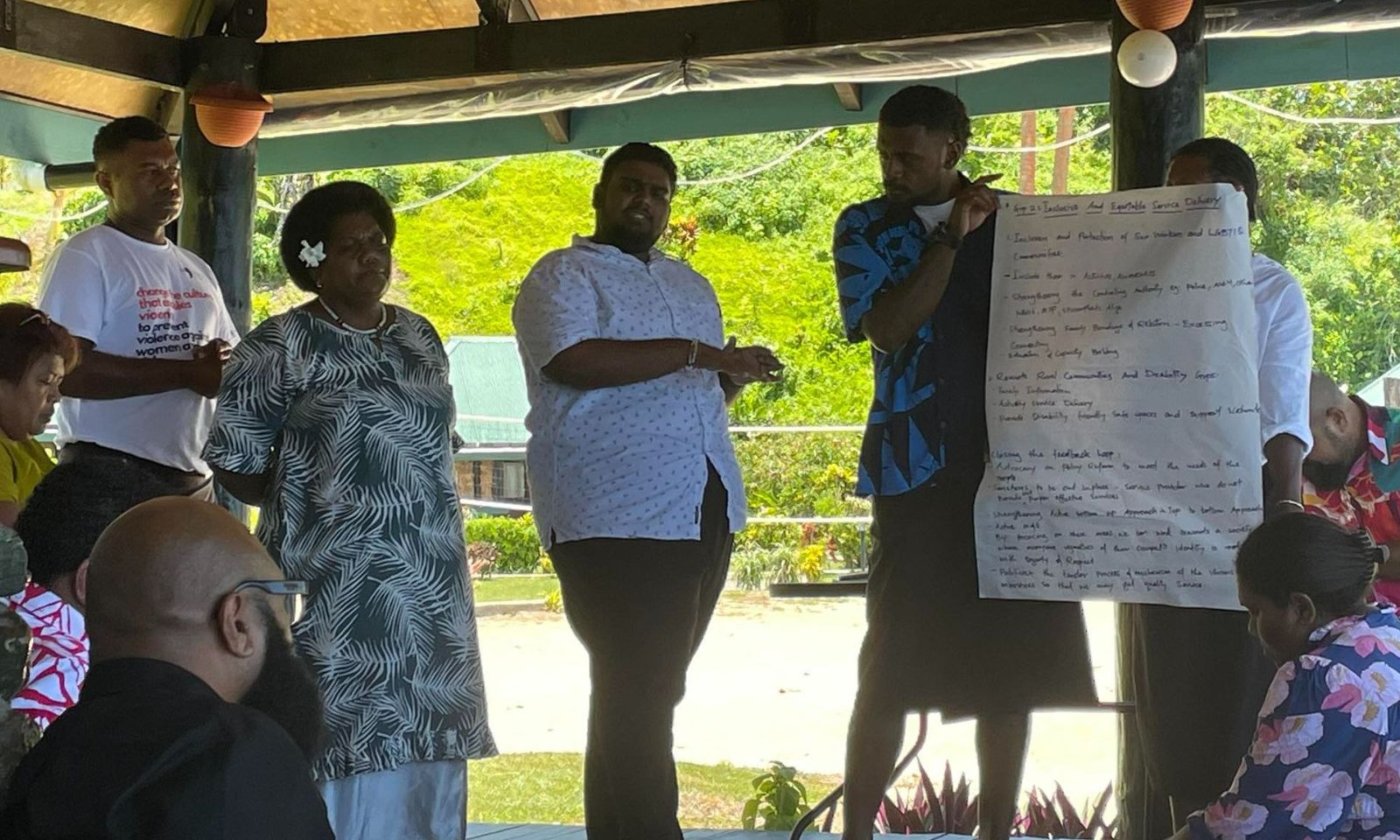
The Council says it also made submissions to government for the 2025-2026 Fiji national budget. Photo/FCOSS
“Year in and year out, we see great initiatives, well-intentioned, but they don't actually yield the kind of results that it had hoped to yield,” she says.
“To me, the issue of productivity in the civil service is still the key to achieving what this budget intends to achieve.
“So if our leaders are not decisive, are not perhaps aware of the strategies to, you know, turn that around, we'll still see gaps come next year.”
She stresses that without reform in the civil service, the desired outcomes of the budget will not be fully realised.